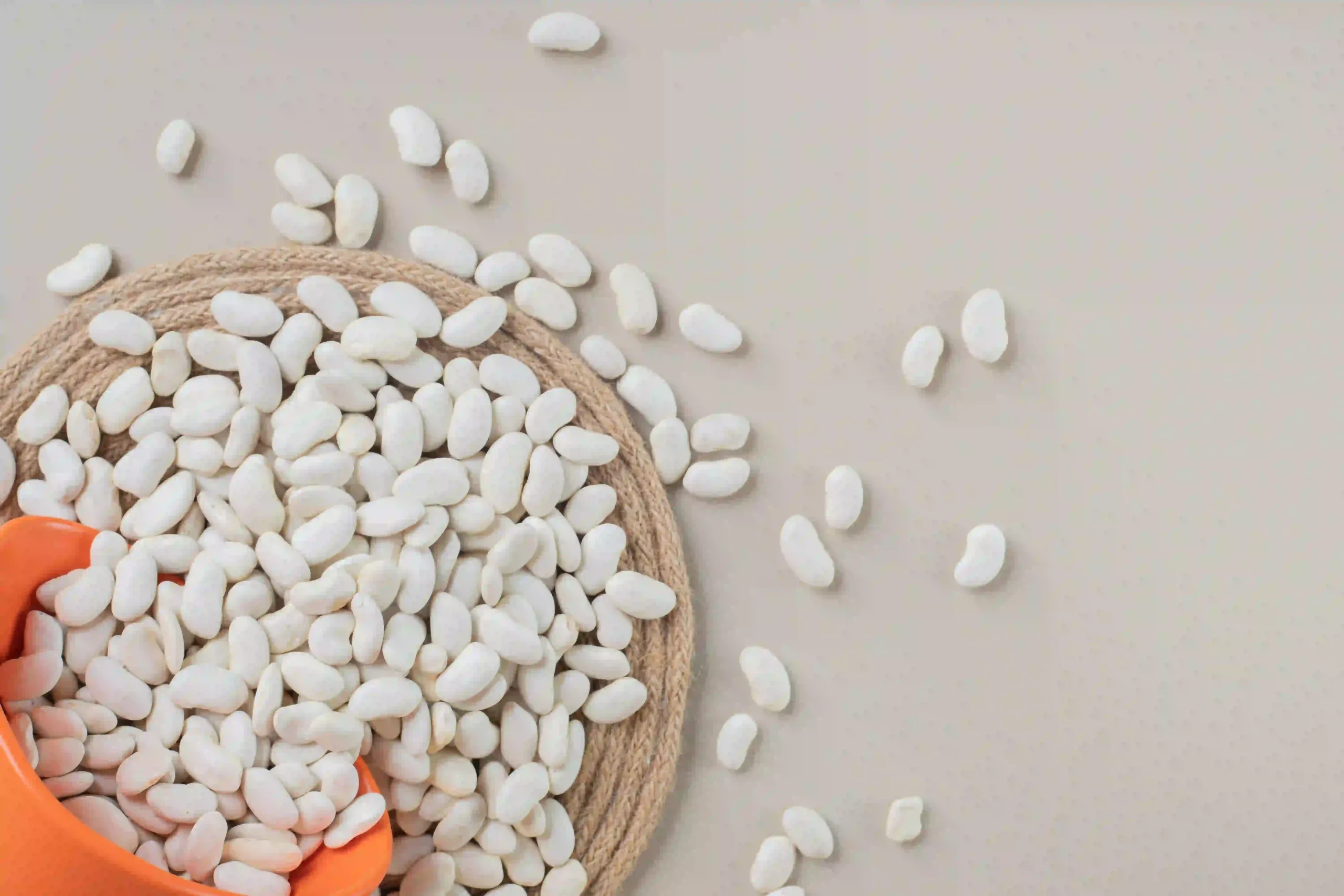Understanding Arisaema Triphyllum: An Overview
In the vast world of traditional wellness practices, Arisaema triphyllum stands out as a fascinating plant with a rich history of therapeutic applications. Commonly known as Jack-in-the-pulpit in North American folklore, this remarkable plant has garnered attention from both traditional healers and modern wellness enthusiasts.
Traditional Names and Cultural Significance
The plant’s common name, Jack-in-the-pulpit, derives from its unique flowering structure that resembles a preacher (Jack) standing in a pulpit. This distinctive member of the Arisaema genus has been revered in various cultural traditions, particularly among Native American communities, who recognized its potential therapeutic properties long before modern scientific investigation began.
Botanical Classification and Related Species
Within the broader Arisaema family, several species have demonstrated noteworthy therapeutic potential. Notable varieties include Arisaema consanguineum and Arisaema dracontium, each contributing their own unique properties to traditional wellness practices. Arisaema triphyllum, our focus today, has particularly stood out in North American traditional medicine.

The Historical Journey in Traditional Medicine
Ancient Ayurvedic Applications
While various Arisaema species have been documented in Ayurvedic medicine, the principles applied to related species like Arisaema ringens and Arisaema serratum have helped inform our modern understanding of these plants’ potential benefits. Today, wellness practitioners continue to study how these ancient insights might apply to Arisaema triphyllum.
Native American Healing Practices
Native American healers have historically utilized Arisaema triphyllum in their traditional wellness practices. Their careful observations and generational knowledge have contributed significantly to our current understanding of this plant’s applications in supporting overall health.
Chemical Composition and Active Compounds
Key Beneficial Components
The wellness properties of this remarkable plant can be attributed to its complex array of bioactive compounds. Recent scientific investigations have revealed the presence of various beneficial components, including calcium oxalate crystals and specific alkaloids. However, it’s crucial to note that these compounds require careful processing and proper preparation to be safely utilized in wellness applications.
Bioavailability Factors
Understanding the bioavailability of these compounds is essential for maximizing their potential benefits. Various factors, including preparation methods and consumption timing, can significantly impact how effectively your body processes these beneficial compounds. Arisaema triphyllum preparations particularly require careful attention to processing methods to ensure optimal bioavailability.
Health Benefits and Therapeutic Applications
Respiratory System Support
Traditional wellness practitioners have long associated this plant with respiratory health support. While modern research is still ongoing, historical usage patterns suggest potential applications in supporting healthy respiratory function when properly prepared and administered.
Anti-inflammatory Properties
Early investigations into the properties of Arisaema plants, including Arisaema triphyllum, have indicated potential anti-inflammatory properties. However, it’s important to approach these findings with appropriate scientific skepticism as more research is needed to fully understand the mechanisms and efficacy.
Immune System Modulation
Traditional wisdom suggests that properly prepared extracts may help support healthy immune system function. While these traditional observations are promising, it’s essential to wait for more comprehensive scientific validation before making definitive claims.
Modern Research and Scientific Evidence
Clinical Studies
Recent scientific investigations into Arisaema triphyllum have begun to shed light on its traditional applications. While research is still in its early stages, preliminary studies suggest promising directions for future investigation. Scientists are particularly interested in understanding how the bioactive compounds in this plant interact with human physiology, though it’s important to note that many studies are still in preclinical phases.
Safety Assessments
Current safety evaluations of Arisaema triphyllum emphasize the importance of proper preparation and dosage. Researchers continue to study optimal processing methods to ensure safe consumption while maintaining therapeutic potential. This careful approach to safety assessment reflects the scientific community’s commitment to understanding both benefits and risks.
Comparing Arisaema Species in Wellness Applications
Arisaema Consanguineum vs. Triphyllum
When comparing different species within the Arisaema genus, each offers unique properties worth considering. While Arisaema consanguineum has been extensively studied in Asian wellness traditions, Arisaema triphyllum has emerged as a significant player in North American traditional medicine. Each species demonstrates distinct characteristics that may complement different wellness goals.
Other Notable Varieties
The Arisaema family includes several other noteworthy species such as Arisaema dracontium and Arisaema serratum. While these variants share some common properties with Arisaema triphyllum, each brings its own unique profile of beneficial compounds. Understanding these differences helps practitioners make informed recommendations based on specific wellness objectives.
Recommended Usage and Dosage Guidelines
Different Forms and Preparations
The effectiveness of Arisaema triphyllum largely depends on proper preparation methods. Traditional processing techniques have been refined over generations to optimize both safety and efficacy. Current wellness practitioners recommend various preparation methods, including:
- Carefully processed extracts
- Traditional decoctions
- Standardized supplements (where available)
- Properly prepared topical applications
Each form requires specific preparation protocols to ensure both safety and effectiveness.
Optimal Timing and Administration
Timing plays a crucial role in maximizing the benefits of your wellness routine. When incorporating this traditional herb into your regimen, consider:
- The best time of day for administration
- Potential interactions with meals
- Seasonal variations in potency
- Individual response patterns
- Duration of use recommendations
Target Demographics and Consumer Profiles
Age Groups and Health Conditions
While Arisaema triphyllum has a broad range of traditional applications, its use may be particularly relevant for:
- Adults seeking natural wellness support
- Individuals interested in traditional healing practices
- Those looking for complementary approaches to health maintenance
- People interested in respiratory system support
- Individuals focused on immune system health
It’s important to note that certain populations, including pregnant women, children, and those with specific health conditions, should consult healthcare providers before use.
Lifestyle Considerations
Your lifestyle factors significantly influence how you might incorporate traditional herbs into your wellness routine. Consider:
- Daily schedule and routine
- Existing health practices
- Dietary preferences and restrictions
- Activity levels
- Stress management needs
- Overall wellness goals

Safety Considerations and Precautions
When exploring traditional herbs for wellness support, understanding the safety profile of Arisaema triphyllum becomes paramount. Like many powerful natural compounds, this traditional herb requires careful consideration and respect for its potency. Proper education about safety measures can help you maximize benefits while minimizing potential risks.
Potential Side Effects
As with any wellness supplement, it’s crucial to be aware of possible reactions when using Arisaema triphyllum preparations. While traditional use suggests a generally good safety profile when properly prepared, you should watch for:
- Initial digestive adjustments
- Individual sensitivity responses
- Possible changes in energy levels
- Temporary shifts in body temperature
- Variations in normal bodily processes
Should you experience any unexpected reactions, it’s advisable to discontinue use and consult with a qualified healthcare provider.
Contraindications
The therapeutic potential of Arisaema triphyllum must be balanced against specific contraindications. Certain populations should exercise particular caution:
- Pregnant or nursing mothers
- Individuals with pre-existing health conditions
- People taking prescription medications
- Those with known sensitivities to similar botanical compounds
- Individuals with compromised immune systems
Quality Factors and Selection Guidelines
Sourcing and Authentication
The effectiveness of Arisaema triphyllum largely depends on its quality and authenticity. When selecting preparations, consider these essential factors:
- Source reputation and transparency
- Sustainable harvesting practices
- Processing methods and standards
- Third-party testing results
- Storage conditions prior to purchase
Look for suppliers who maintain detailed documentation about their sourcing and processing methods.
Storage and Shelf Life
Proper storage of Arisaema triphyllum preparations can significantly impact their therapeutic potential. Consider these key storage principles:
- Keep in a cool, dry place away from direct sunlight
- Maintain consistent temperature conditions
- Use appropriate airtight containers
- Monitor expiration dates carefully
- Check regularly for any signs of degradation
Market Availability and Product Forms
The availability of high-quality Arisaema triphyllum preparations has expanded with growing interest in traditional wellness practices. When selecting products, you’ll encounter various forms, each with specific advantages:
Supplement Options
Modern processing techniques have led to diverse supplement forms of Arisaema triphyllum. Common options include:
- Carefully prepared extracts
- Standardized capsules
- Traditional preparations
- Topical applications
- Combination formulas with complementary herbs
Traditional Preparations
Historical wisdom has given us several time-tested methods for preparing Arisaema triphyllum:
- Traditional decoctions
- Carefully processed powders
- Ancient extraction methods
- Heritage preparation techniques
- Time-honored formulations
FAQs About Arisaema Triphyllum
Q: How do I know if I’m choosing a quality product?
A: Look for products from reputable manufacturers that provide detailed sourcing information, third-party testing results, and clear preparation guidelines. Authenticity certificates and sustainable harvesting practices are also important indicators of quality.
Q: What’s the optimal time to take these preparations?
A: Traditional wisdom suggests taking Arisaema triphyllum preparations on an empty stomach, typically in the morning or between meals. However, individual responses may vary, and you should adjust timing based on personal experience and practitioner guidance.
Q: Can I combine this with other supplements?
A: While Arisaema triphyllum has been traditionally used alongside other herbs, it’s important to consult with a qualified healthcare provider about specific combinations, especially if you’re taking any medications.
Q: How long does it typically take to see results?
A: Individual responses vary, but traditional practice suggests allowing 4-6 weeks of consistent use to evaluate effectiveness. Keep detailed notes about your experience to share with your healthcare provider.
Q: Are there any seasonal considerations for usage?
A: Some traditional practitioners recommend adjusting usage based on seasonal changes. Winter and spring are often considered optimal times for respiratory support applications.
Conclusion: Making an Informed Decision
As we conclude our comprehensive exploration of Arisaema triphyllum, it’s essential to synthesize the key insights that will help you make informed decisions about incorporating this traditional herb into your wellness routine. The rich history and emerging research surrounding this remarkable plant present both exciting possibilities and important considerations.
Benefits Summary
The potential benefits of Arisaema triphyllum, when properly prepared and administered, include:
- Traditional support for respiratory health
- Historical use in immune system modulation
- Potential anti-inflammatory properties
- Rich cultural heritage in traditional medicine
- Diverse applications in wellness practices
These benefits, supported by generations of traditional use and preliminary modern research, offer intriguing possibilities for those interested in natural wellness approaches.
Practical Recommendations
When considering Arisaema triphyllum for your wellness routine, keep these key points in mind:
- Quality Matters
- Choose products from reputable sources
- Look for clear documentation of sourcing and processing
- Consider sustainable harvesting practices
- Verify third-party testing when available
- Ensure proper storage conditions
- Individual Approach
- Start with recommended dosages
- Monitor your body’s response
- Keep detailed notes of your experience
- Adjust timing based on personal patterns
- Consider seasonal variations
- Professional Guidance
- Consult with qualified healthcare providers
- Discuss potential interactions with current medications
- Establish clear wellness goals
- Create a structured plan for usage
- Regular check-ins to assess progress
Looking at the broader context of traditional wellness practices, Arisaema triphyllum represents an interesting intersection of ancient wisdom and modern investigation. While related species like Arisaema consanguineum and Arisaema dracontium have their own established roles in traditional medicine, each offers unique insights into the potential of these remarkable plants.
For those interested in exploring traditional herbs, remember that natural doesn’t always mean completely safe. The power of Arisaema triphyllum lies in both its potential benefits and the respect it commands for proper preparation and use. As research continues to evolve, our understanding of this traditional herb will likely deepen, potentially revealing new applications while validating historical uses.
By approaching Arisaema triphyllum with both enthusiasm and caution, you can make the most of its potential while maintaining a safe and effective wellness routine. Continue to stay informed about new research developments, maintain open communication with healthcare providers, and listen to your body’s responses as you explore this fascinating aspect of traditional wellness practices.
Remember, your wellness journey is unique, and what works for others may not work exactly the same way for you. Take time to understand your own needs and responses, and use this knowledge to guide your decisions about incorporating Arisaema triphyllum into your personal wellness routine.



